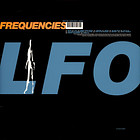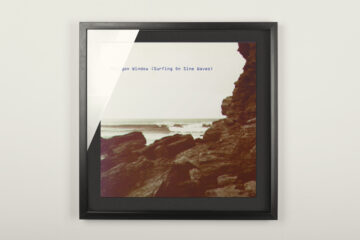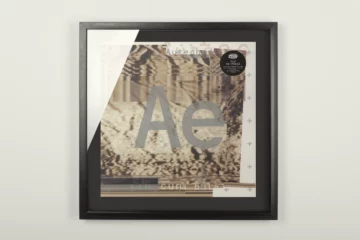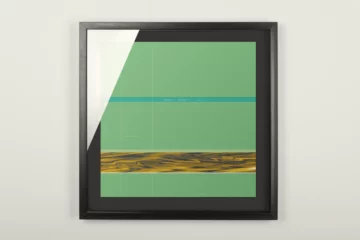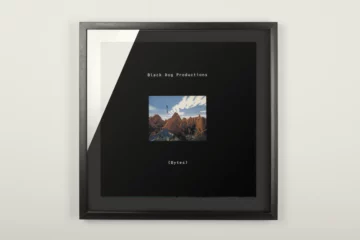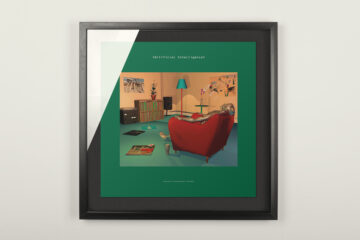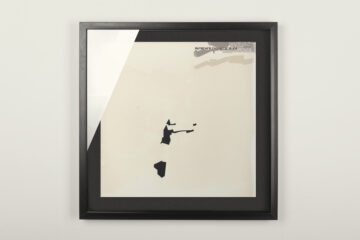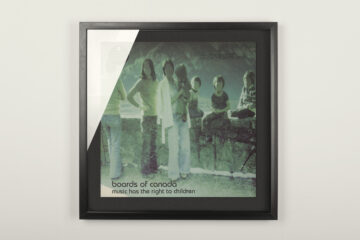»House? What is house? KLF, Technotronic, or something you just live in?« Self reflection of your own activities at the start of an album is quite a lot of discourse for a record with club music. But perhaps this was needed in the early nineties, just as the humour apparent in these questions, the electronically distorted vocals notwithstanding. The oomph called techno that had proclaimed a new era, thereby emphasizing the bass, was still quite recent, after all. And people enjoyed heated debates as to whether these ‘programmed’ sounds for which you did not have to pay a drummer or a bass player could be considered music at all.
As if we would not have had this sort of thing in the eighties already. For example, there had been quite a fuss about Frankie Goes to Hollywood back then. But at least their producer Trevor Horn, along with his fully electronic gear, manufactured songs to which »real« people would even sing. LFO, however, on their first album ‘Frequencies’ were throwing the mechanical nature of their product in their listeners’ face. No singing, instead processed samples and computer voices at best. Apart from that only harsh beats, high bleeps and low clonks, outlandish sounds for which there had apparently been insufficient familiarisation in spite of Kraftwerk or Depeche Mode.
The openness towards the unknown was nonetheless sufficient enough to allow for ‘Frequencies’ to reach number 42 of the British album charts in 1991. The record was among the first techno albums ever, but it gathered quite some attention beyond dancefloors as well. Already their single »LFO« from 1990 had made it into the British charts. Furthermore, it is the only track the duo from Leeds did not produce entirely on their own. Also involved was the Warehouse resident Martin Williams aka DJ Martin. It was thanks to their colleague that the duo ended up with Warp in the first place since Williams had played the demo of »LFO« at the Warehouse, thereby sparking the Sheffield label’s interest.
LFO, named after the low frequency oscillator used for sound synthesis in synthesizers, were Mark Bell and Gez Varley. The two had met at a breakdance contest in Leeds during the mid-eighties. Already as teenagers they had been toying around with drum machines. Questions such as how to use them in order to make people dance were of secondary importance to them. Perhaps this approach of carefree trial and error, too, was responsible for their style becoming so successful.
This seeming contrast in LFO, the physical pervasiveness of their bass sounds and the cerebral approach in the higher frequencies, makes up the charm of »Frequencies«. 30 years in, it has lost none of its effect.
In the late eighties there was a »Bleep« community of musicians in Northern England who, by employing game sounds and producing tracks in a rather spartan mode, put a very distinct conception of club music to the test. Among them were also Nightmares on Wax who LFO were friends with. The bleep approach was carried further by LFO, their singles »LFO« and »We Are Back« proving to be subbass monsters suitable to shake factory floors and eventually guaranteeing the success of the style. Or they would follow an altogether different track such as in »Nurture« with its melodies turned into something altogether shimmering and impalpable by the playful use of glided pitch, thus providing a blueprint for the sonic sophistications of IDM.
This seeming contrast in LFO, the physical pervasiveness of their bass sounds and the cerebral approach in the higher frequencies, makes up the charm of »Frequencies«. 30 years in, it has lost none of its effect. Ideally, their music works on both levels at once – or rather it causes rhythmic movement in its listeners by physical or mental means optionally. Also to be counted among the strengths of LFO is the clacking and, by today’s standards, old-fashioned character of the drum machines. However, they rarely keep rattling along, instead, their rough syncopation betrays early influences of Hip Hop in Bell and Varley.
Although definitely techno celebrities in their own day, LFO, other than their bird-of-paradise-like label colleagues Aphex Twin or Autechre, never quite achieved pop star status. This was perhaps thanks to the fact that beside their comparatively down-to-earth techno IDM hybrid, they were clearly more modest in terms of releasing. »Advance« from 1996 was the second and last album as a duo. After that Bell became a talking point as a producer of Björk, among others. Varley, on the other hand, would go on to release a series of solo techno albums that would go a little under the radar. In 2003, Bell released a final LFO record entitled »Sheath«. His early death in 2014 put an end to the project. What remains, is a sonorous future promise that has fully been made good on.
